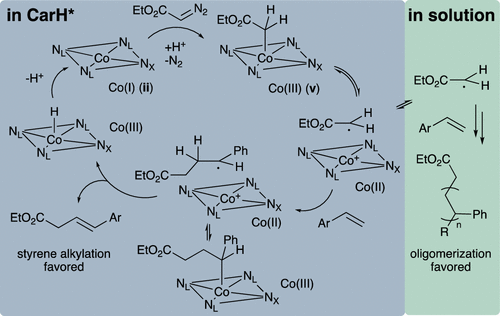As anyone who ever took organic chemistry remembers, “pushing” electrons is the key to building molecules, understanding reactions and catalyzing new reactions. Electrochemistry is fundamentally a way to control how electrons are pushed – with the tools of electrochemistry, and knowledge of the thermodynamics and kinetics of moving electrons, we can explore new opportunities. This often entails development of new tools and techniques to probe reactions. Check out some of our recent work in this area, more can be found in the publications themselves.

recent echem results
- Pittcon 2024

- New members of the bakergrp 2023

- Texas Electrochemical Roundup

- Legion published in ACS Measurement Science Au

- GRC on Chemical Imaging

- Sasha Alden selected for 2023 ECS Summer Fellowship

- New paper published from Kristen Alanis – SICM of Nafion-modified Nanopores

- Our New COMSOL Simulation Horsepower
 For electrochemists doing research with scanning probe techniques, COMSOL modeling plays a significant role in instructing experiment design, estimating imaging results affected by pipette geometric, and validating electrochemical phenomena observed. Recently,… Read more: Our New COMSOL Simulation Horsepower
For electrochemists doing research with scanning probe techniques, COMSOL modeling plays a significant role in instructing experiment design, estimating imaging results affected by pipette geometric, and validating electrochemical phenomena observed. Recently,… Read more: Our New COMSOL Simulation Horsepower - NSF CCI Center for Single-Entity Nanochemistry and Nanocrystal Design
 A consortium from Indiana University, Texas A&M, Temple and the University of Texas have recently been awarded a grant to establish the NSF Center for Chemical Imaging – the Center for… Read more: NSF CCI Center for Single-Entity Nanochemistry and Nanocrystal Design
A consortium from Indiana University, Texas A&M, Temple and the University of Texas have recently been awarded a grant to establish the NSF Center for Chemical Imaging – the Center for… Read more: NSF CCI Center for Single-Entity Nanochemistry and Nanocrystal Design - Single-Entity Nanoparticle SECCM
 The Baker group studied single-entity electrochemistry in the collaboration with Ye group (Indiana University Bloomington) to study and characterize electrocatalytic activity of single nanocrystals by utilizing scanning electrochemical cell microscopy (SECCM)… Read more: Single-Entity Nanoparticle SECCM
The Baker group studied single-entity electrochemistry in the collaboration with Ye group (Indiana University Bloomington) to study and characterize electrocatalytic activity of single nanocrystals by utilizing scanning electrochemical cell microscopy (SECCM)… Read more: Single-Entity Nanoparticle SECCM


